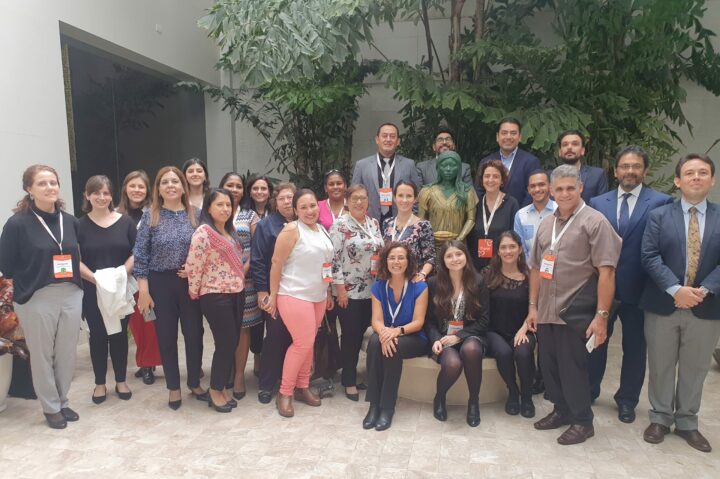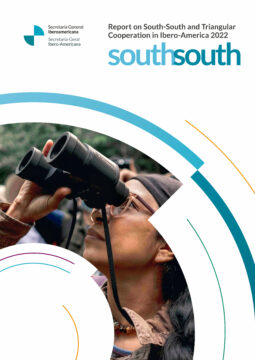Ibero-American countries meet to make progress on the registration of South-South and Triangular Cooperation scholarships
An effort to quantify these type of initiatives and make their contribution to Ibero-American cooperation more visible.

Scholarships are a key instrument for human capital training in the countries of the South. Some of them, such as Brazil, Chile, Cuba and Mexico, have long-standing policies to support other partners by offering scholarships, both for short courses and for formal training (undergraduate, master’s degrees, etc.).
Since 2007, the Report on South-South and Triangular Cooperation Ibero-America has made the importance of the exchanges that take place in the region in the framework of these cooperation modalities visible. Throughout these years and as a result of methodological agreements among the countries, the information system that supports the Report has been strengthened. Each year, the Ibero-American Program for the Strengthening of South-South Cooperation (PIFCSS by its Spanish acronym) and SEGIB, organize activities to strengthen countries’ capacities to continue improving the quality of the information by refining the methodology. Progress is made horizontally and by consensus, in line with two essential principles of South-South Cooperation.
In this sense, Ibero-American countries met in Lima on May 16th and 17th, 2023, in the framework of the workshop “Towards a better characterization and systematization of scholarships in the Ibero-American Integrated Data System on South-South and Triangular Cooperation – SIDICSS (III)”. The activity was organized by PIFCSS, facilitated by SEGIB and supported by the Peruvian Agency for International Cooperation (APCI by its Spanish acronym). The aim was to agree on a conceptual and methodological definition of South-South and Triangular Cooperation scholarships to be registered in SIDICSS.
This workshop was the final stage of a long process that began with the official request of some countries to make progress on this issue. The first activity to address this topic – held in Panama at the end of 2018 – drew interesting conclusions, but revealed the need to further deepen the debate in order to put its outcomes into practice. To this end, a working group was created with five member countries in 2021, after the first phase of the pandemic. This group came to important agreements, both through its online sessions and in the second face-to-face workshop held in 2022. However, these agreements had to be shared with the rest of the countries in order to reach regional standards.
Thus, in Lima, consensual decisions were made on three important issues: (1) the elements that define South-South and Triangular Cooperation scholarships and the main aspects that differentiate them from other cooperation instruments; (2) how scholarships will be registered in SIDICSS (the unit of registration) and the required and available information, distinguishing mandatory items (common minimums) from additional data; and (3) how to put all this into practice in the current information system.
In addition, a roadmap was set to implement the results achieved, which includes carrying out pilot studies, both in terms of the recategorization of current records and for the registration of future scholarships.
June 2023
***
Source: SEGIB.
Photograph: PIFCSS (2023).

